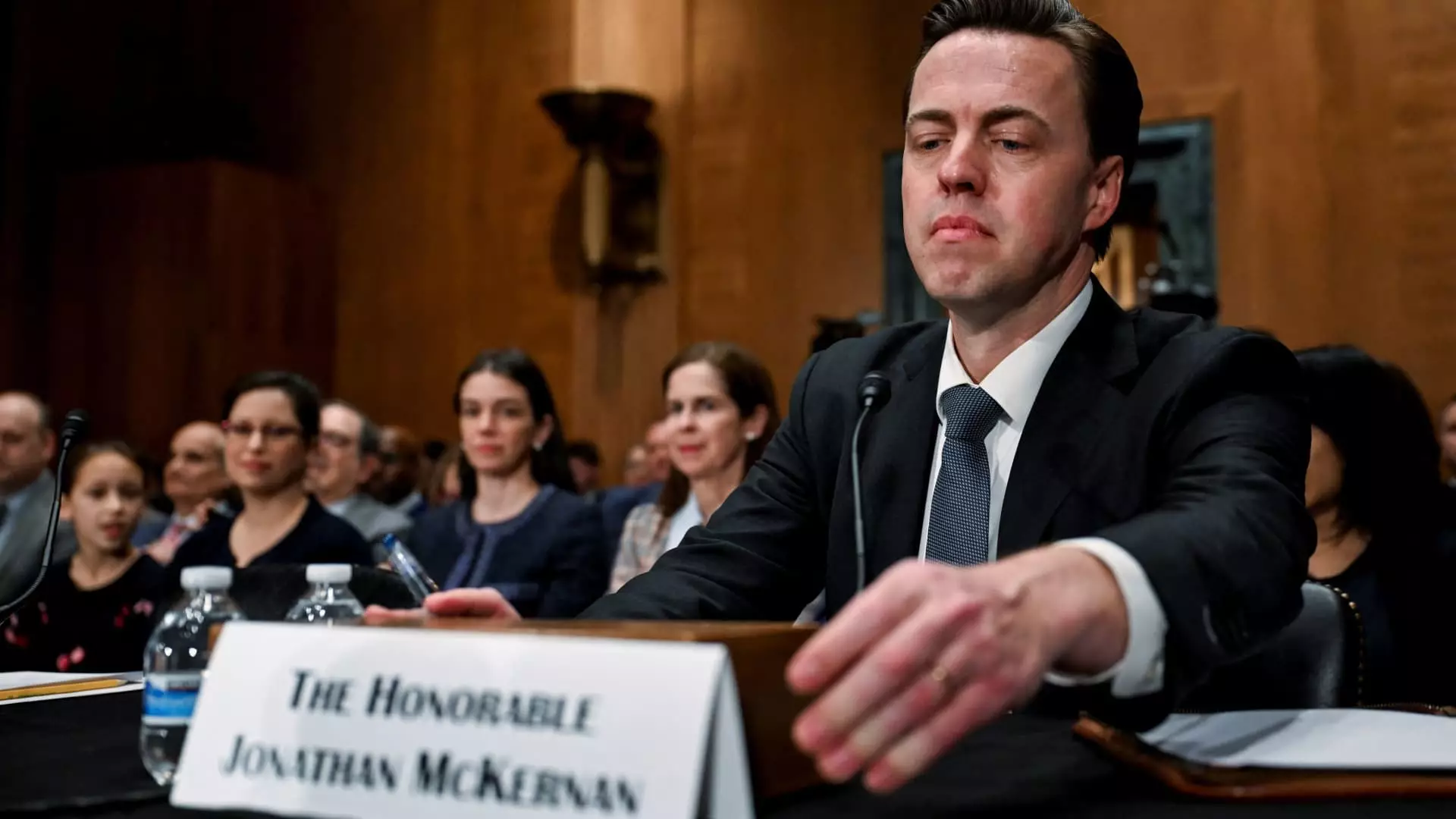The appointment and functioning of the Consumer Financial Protection Bureau (CFPB) embody critical discussions about consumer rights and financial practices in America. Recently, Jonathan McKernan, President Donald Trump’s nominee to lead the CFPB, faced a challenging confirmation hearing that highlighted the juxtaposition of political motives and the agency’s core mission. Through the examination of his statements and the concerns raised by senators, particularly from the Democratic side, it is apparent that the future of the CFPB hangs in the balance, amid fears of its potential dismantlement.
Established after the 2008 financial crisis, the CFPB was designed to protect consumers from unfair, deceptive, or abusive practices in the financial sector. Its role goes beyond mere regulation; it encompasses the advocacy for consumer rights in various financial transactions, safeguarding groups such as veterans and senior citizens. McKernan’s acknowledgment of this mission was evident in his opening remarks, where he expressed a commitment to uphold the agency’s responsibilities. His legal career, having begun on the brink of the financial crisis, offers him a perspective that acknowledges the necessity of robust consumer protection measures.
However, McKernan conveyed a departure from the operational ethos of his predecessor, Rohit Chopra, critiquing the CFPB’s past approach as politicized and overreaching. This perspective raises concerns about the future integrity of the agency. Critics argue that adopting a more business-friendly approach may impede its original purpose of shielding consumers from financial misconduct. McKernan’s attempt to redefine the CFPB as a more “accountable” entity could risk sidelining its fundamental objective, which is to safeguard everyday Americans from predatory practices.
As McKernan navigated the confirmation process, he faced intense scrutiny from Democratic senators, particularly from Elizabeth Warren. Her probing questions reflected a broader unease about the direction of the CFPB under a Trump administration increasingly critical of regulatory frameworks. Warren’s pointed remarks, suggesting McKernan was positioned like a “No. 1 horse at the glue factory,” encapsulated the sentiment that the CFPB might be headed toward obsolescence or severe diminishment.
The allegations surrounding agency operations, including the dismissal of lawsuits against major financial institutions and the cutting of workforce, raise alarm about the CFPB’s ability to maintain its functions effectively. With McKernan informing lawmakers of his intention to “right-size” and “refocus” the agency, the question arises: who will ultimately benefit from such changes? There is a palpable tension between the goal of consumer protection and political ideologies that prioritize deregulation and reduced government involvement in financial markets.
The confirmation hearing underscored a critical juncture for the CFPB: as it stands against the backdrop of administrative objectives that may undermine its operations, the future of consumer advocacy becomes increasingly uncertain. The dismissal of enforcement lawsuits against corporations such as Capital One raises fundamental questions about the agency’s commitment to its mandate. If the intent is to decrease regulatory burdens on businesses, what repercussions will this have for the very consumers the CFPB is meant to protect?
McKernan’s affirmations about adhering to statutory requirements, including maintaining websites and toll-free lines for complaints, seem promising in theory. However, in practice, the agency’s ability to function effectively and deliver on these commitments remains questionable when weighed against the wider regulatory environment signaling dissatisfaction with consumer protection measures.
The confirmation of Jonathan McKernan as the new head of the CFPB exemplifies the divergent paths that consumer protection could take in the years to come. With intentions of refocusing and potentially dismantling key functions of the bureau, the challenge lies not just within McKernan’s capabilities, but rather in the broader political landscape insisting on the necessity of a financial regulatory system that truly prioritizes consumer welfare over corporate interests. As advocates for consumer rights reflect on these developments, it becomes evident that vigilance and active participation will be essential for ensuring that the CFPB remains a bastion of protection for American consumers, a commitment that must be held steadfast even as the agency faces rising tides of opposition.

